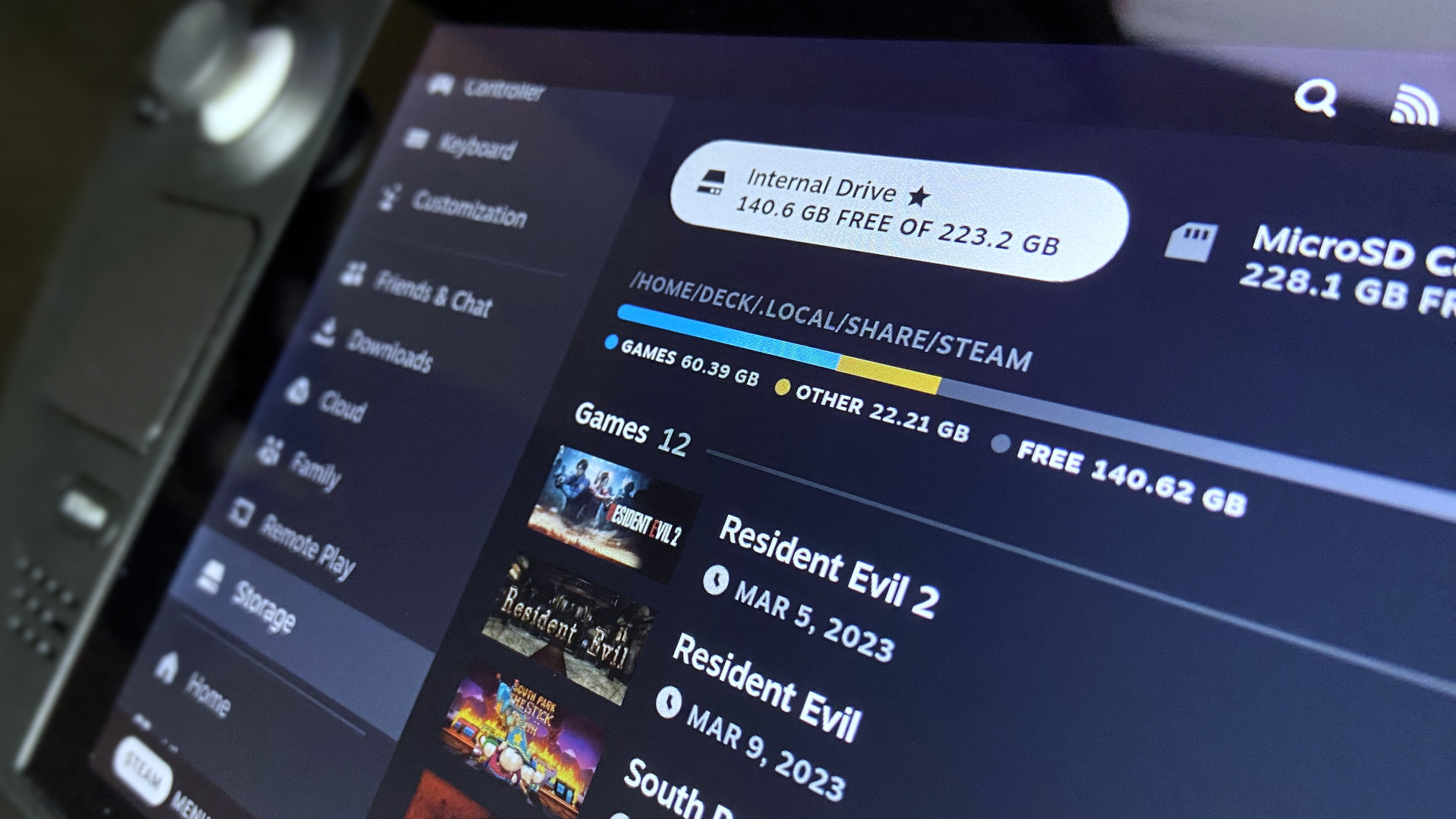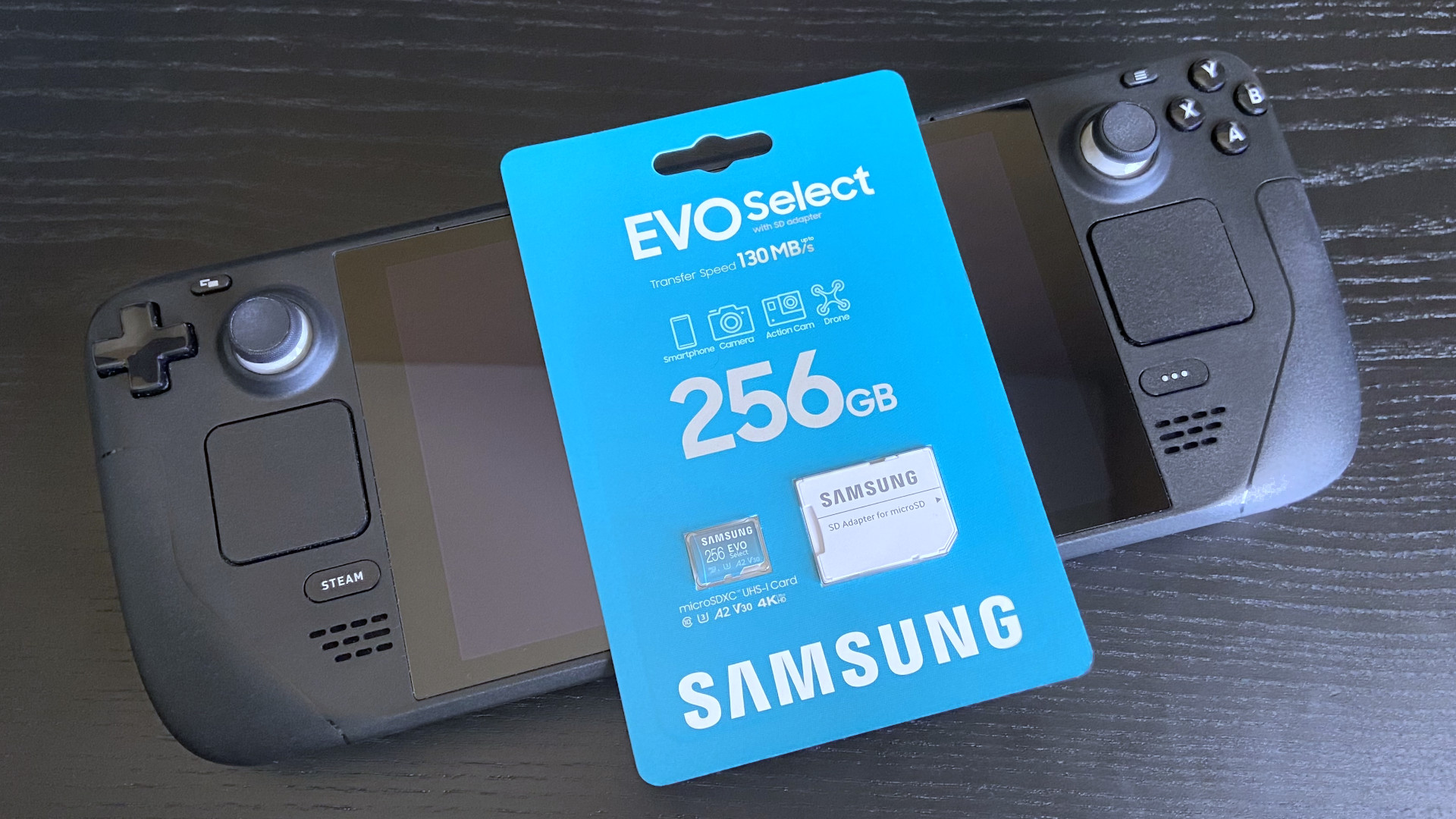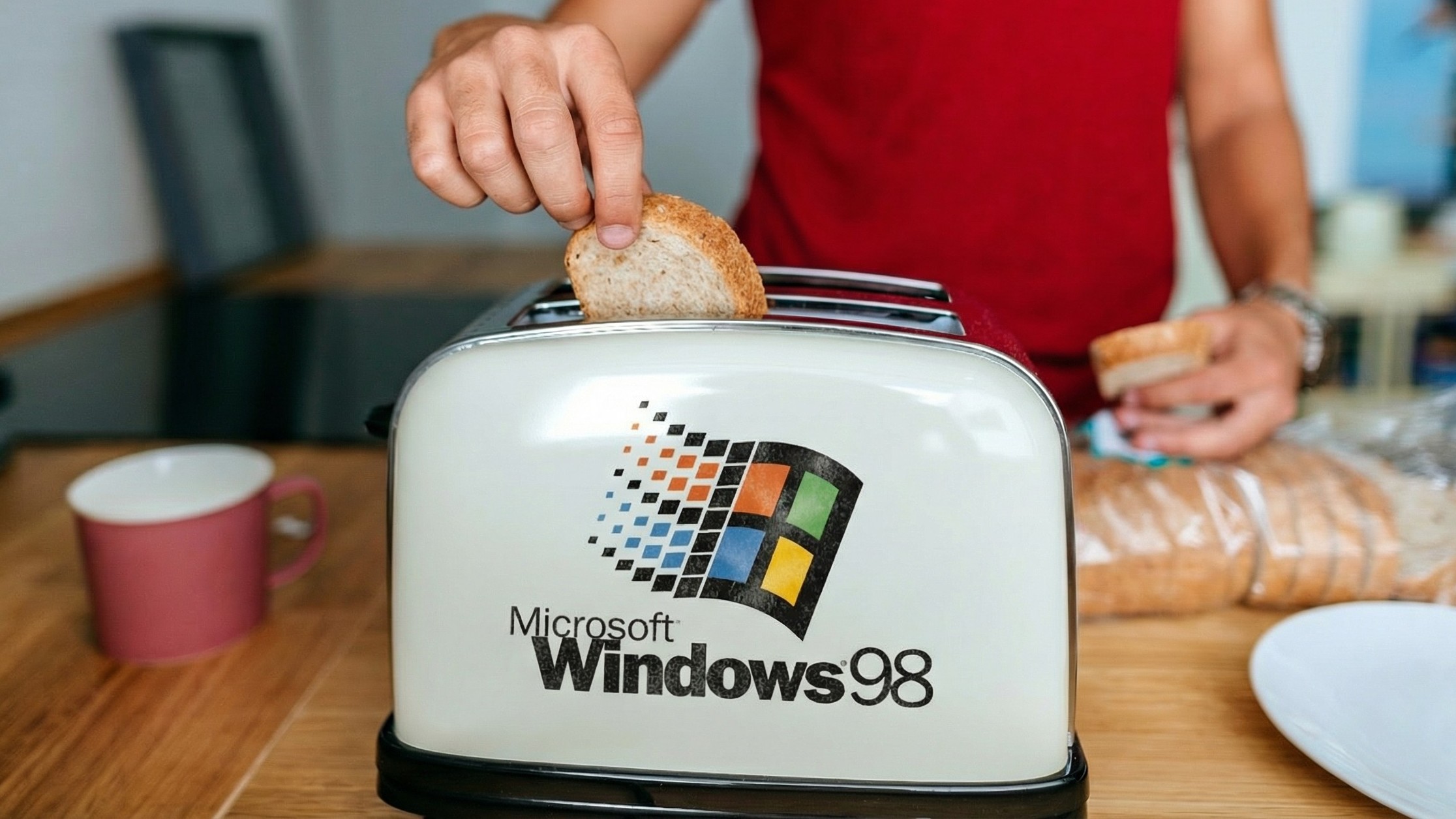Steam Deck shader cache files to shrink by 60% with a driver update
Less shader bloat means more space for games.

All the latest news, reviews, and guides for Windows and Xbox diehards.
You are now subscribed
Your newsletter sign-up was successful
What you need to know
- Valve's portable Steam Deck handheld runs a variant of the Linux operating system and an open-source video driver known as Mesa.
- An upcoming update to Mesa includes improvements to a shader cache pipeline used by the Vulkan graphics API.
- PC Gamer reached out to Valve and received confirmation that the update should reduce shader cache sizes by around 60%.
Even the most satisfied Steam Deck owners may have noticed their storage devices becoming overrun by a mysterious 'other' category, notoriously containing pre-cached shader files intended to speed up load times on Valve's handheld. Community-made solutions exist, including the fantastic CryoUtilities created by CryoByte33 on GitHub, which usually focuses on optimizing swap files but can also help to manage a chunky shader cache in most games.
#Mesa 23.1 #Radeon RADV Change Leads To ~60% Smaller Single File Disk Cachehttps://t.co/kZb63fbhC5April 11, 2023
Thankfully, a more official solution is reportedly on the way (via PC Gamer) in the form of an update to the open-source graphics driver used by Valve on the Steam Deck. Said to reduce shader cache file sizes by around 60%, Valve's Pierre-Loup Griffais confirmed that improvements made to the Mesa 23.1 driver would maintain the current method of downloading ready-made shader cache files during game installs, but they'll be significantly smaller thanks to a new Vulkan pipeline.
Anyone who opts for the entry-level Steam Deck featuring a somewhat modest 64GB solid-state drive will undoubtedly be delighted to hear that improvements are coming for the bloated shader cache files. Expanding your space with external storage is straightforward enough with some of the best SD cards for Steam Deck, but there's not much use if even those rapidly fill up with junk. It's been a common complaint and an understandable gripe for those picking up the more affordable Deck variant.
SteamOS is expected to enjoy a sizeable update to version 3.5 soon, alongside a new Linux kernel, and the Mesa release calendar shows driver v23.1 planned for early May, so it's not unreasonable to assume these two releases will combine for a healthy update to the Steam Deck's performance and storage efficiency. Some of the limited downsides to Valve's handheld gaming PC certainly seem to be enjoying a series of patches and solutions, so check our full Steam Deck review if you're tempted.
All the latest news, reviews, and guides for Windows and Xbox diehards.

Ben is a Senior Editor at Windows Central, covering everything related to technology hardware and software. He regularly goes hands-on with the latest Windows laptops, components inside custom gaming desktops, and any accessory compatible with PC and Xbox. His lifelong obsession with dismantling gadgets to see how they work led him to pursue a career in tech-centric journalism after a decade of experience in electronics retail and tech support.

